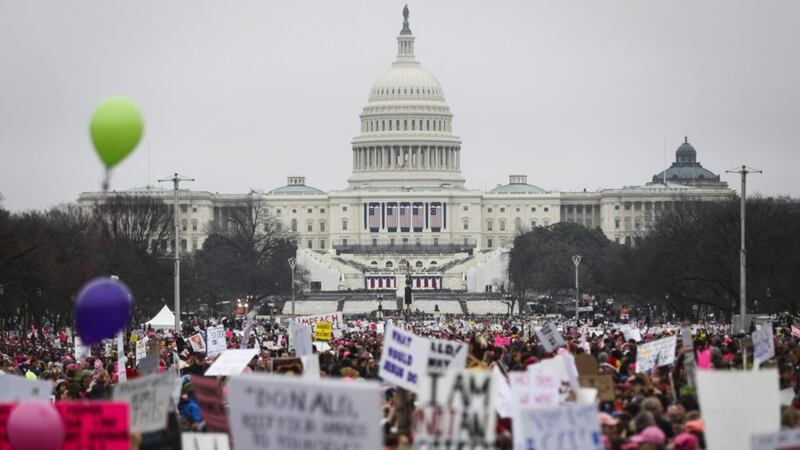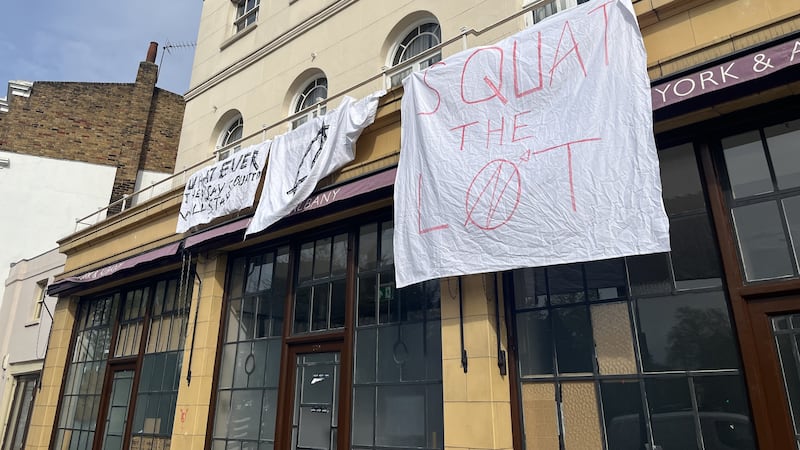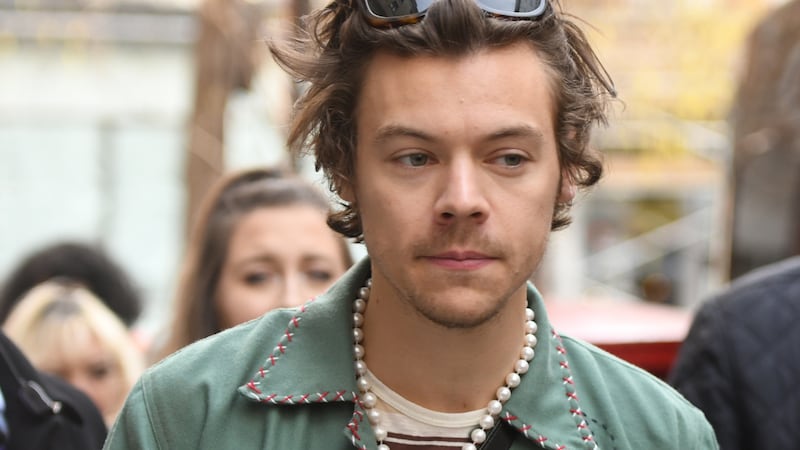On Saturday, thousands of US women took to the streets against the election of Donald Trump and in support of women’s rights and equality.
As fears grew over what a Trump presidency could do to women’s rights in the US, women around the world began to organise marches in solidarity and to raise issues particular to their own countries.
According to Women’s March Global, the group behind the marches, 673 separate marches happened in cities and towns across the world.
We spoke to nine women who attended their local march to hear about their reasons for joining the protests.
Washington: Tiffany Haverfield, 33, works in marketing
This is what democracy looks like. #WomensMarch #theresistance pic.twitter.com/S81gvgIbrg
— Tiffany Rae (@mycognizantflow) January 21, 2017
This is Tiffany’s first large march, having participated in smaller rallies or protests in the past. “I felt compelled to march the day after our new president was elected,” she says. “Everything he stands for defies the definition of America. His election alienates a large proportion of Americans and it’s left many of us feeling unsafe.” Tiffany is insistent that the march is for all people. “This march isn’t for women, it’s for all marginalised and misrepresented groups who have been (or anticipate being) attacked by our new president.
This was an HOUR ago here in Washington D.C.
When injustice becomes law, resistance becomes duty. #WomensMarch pic.twitter.com/yyIWUHrznc
— Tiffany Rae (@mycognizantflow) January 21, 2017
“This march is to show solidarity with ALL of our brothers and sisters: Latino, Muslim, LGBTQ, women, Planned Parenthood and environmental stewards (which are under great threat with this administration).
“Women need to come out and march to show solidarity that we will not accept hate, misogyny, racism, xenophobia, nationalism or environmental degradation as normal.
“Someone said it best the other day; ‘when injustice becomes law, resistance becomes duty’.”
Johannesburg: Lucia Makamure, charity worker
Lucia works as an advocacy and campaigns co-ordinator at equality and justice charity Gender Links.
This action is the most significant she has taken part in and she joined in because “recent global events have shown that there is a backlash towards women’s rights and the gains of the past 50 years are slowly being reversed”.
“I am inspired by the courage and unity that has been displayed by women of the world to stand up for their rights,” she said.
Financing for development must prioritise women's rights #WomensMarch @GenderLinks @CIVICUSalliance @FemnetProg @GenderProtocol pic.twitter.com/HiSqLgONPI
— Sifiso Dube (@SifisoDube) January 21, 2017
The protesters in Lucia’s march couldn’t do a full route as they weren’t granted a permit in time, but 21 women took part in a small march and event at the offices of Gender Links. Lucia reflected on the march, saying: “I feel energised to do more in my space to contribute towards the sustainable development goals.”Sydney: Carolyn ‘Rap Attack’ Ienna
“I am hoping that this sort of thing will stop complacency and people will come out on the street and fight all injustices,” says Carolyn. This includes the plight of aboriginal people in Australia.“People often get put off with aboriginal marches as they don’t understand the hurt aboriginal people are going through,” Carolyn explains.
So this #WomensMarch in #sydney was really huge today! pic.twitter.com/NdsiiH8fkh
— Michael Slezak (@MikeySlezak) January 21, 2017
“They take things personally. I encourage white people to get out there and rally with us. We need the numbers … if we help one another, the job will get done. After all, all oppression and violence are interrelated.”
Berlin: Anne, civil servant
At #WomensMarch in Berlin. Sadly, we aren't going anywhere nor are there speakers ??. pic.twitter.com/4I8yr9EEJC
— Weary Anne (@blacksmything) January 21, 2017
Anne attended a small protest in Berlin because “I’m pansexual and the development in the US scares me to death. I find it important to show up in public so the world sees there are people who aren’t okay with it”.This isn’t her first protest; Anne believes that women need to keep fighting for equality. “I’ve been to protests against right-wing parties in Berlin. Women should have all the same rights as men and as long as that’s not the case, women need to go out and fight for their rights.”Anne told us that although the protest was missing a megaphone, she was glad she attended and “had the feeling of belonging to a group”. She was also pleased to see men in attendance.London: Hayley Smith, 28, works in PR
This isn’t Hayley’s first brush with the cause. She is the founder of FlowAid, a charity which campaigns for free sanitary products for homeless women.It is, however, her first protest march. Hayley wants to “protect our fundamental rights, and to be a part of this amazing event”, she says. “It’s 2017, and it scares me that we are still fighting for this.“This is something that affects the entire female and world population, and we need to become one voice.”
Hayley told us she was “honoured to be a woman, a Londoner and a global citizen” on Saturday as she joined thousands of women marching to Trafalgar Square.Delhi: Urvashi Gandhi, 40, charity worker
#IWillGoOut march in #delhi. https://t.co/isFdPIoKDL
— Urvashi Gandhi (@urvashigandhi) January 21, 2017
Urvashi works with an organisation called Breakthrough and attended a demonstration in Delhi to protest against the mass molestation of women in Bangalore on New Year’s Eve.
The protests occurred across India, using the hashtag #IWillGoOut
“It’s been important to raise these issues in India as the streets are very unsafe,” she says. “Daily misogyny is common and cuts across classes and age. It’s sad that one has to take out a protest march in the 21st century to demand safe spaces for women.”
However, scenes at this weekend’s protest in Delhi gave her hope, including seeing a group of adolescent girls who walked the whole route and the size of the turnout.
“If we do not reclaim our spaces, which is our right, women will always remain oppressed.”
London: Kass Boucher, 40, university lecturer and writer
#WomensMarch pic.twitter.com/9EI8vsrUaR
— Kass Boucher (@KassBoucher1) January 21, 2017
In a tumultuous 12 months for the UK, this isn’t the first big issue that has brought Kass out on to the streets in protest. She also marched against the vote to leave the EU last summer.Her reasons for joining the women’s march are personal. “My mum was a founding member of a pregnancy counselling service in Stevenage in the 70s.
#WomensMarch Periodically, a Mexican style wave of whoops travels along the long line of protesters. Seems appropriate. ????
— Kass Boucher (@KassBoucher1) January 21, 2017
“She was pro-choice, pro-planned parenthood and believed that women’s views about what happened to their own bodies should be listened to and respected.
“This most basic of human rights is, once again, under threat, and it is up to the current generation of women to defend the right to equality and autonomy that our mothers, grandmothers and great-grandmothers fought for in our name.”
Sydney: Althea, 39
Like Kass, Althea was compelled to march by family history as much as her own views and opinions.
“I marched in honour of my great-grandmother, who marched with suffragettes Emmeline Pankhurst and Jessie Street in London and was arrested for her activities.
Join us 21/1/17 as we march in solidarity for women's rights & human rights #Sydney https://t.co/hZpKBnzE2D #womensmarch #womensmarchsydney pic.twitter.com/dbT7lRvtTt
— Women's March Sydney (@womensmarchsyd) January 8, 2017
“I marched in honour of my grandmother, who was politically active from the 1930s and fought to the very end for social justice and women’s rights, particularly older women’s rights. “And I marched in honour of my mother, who raised me on her own with limited resources and, in the style of her mother and grandmother, met every challenge with courage and humour, and always with an eye to, and a generosity toward, those less fortunate.”Althea said the atmosphere of the Sydney march was overwhelmingly positive. “There were many people there and just as many reasons for marching, but there was a genuine sense of common purpose – solidarity with and a commitment to supporting women everywhere.” London: Florence Waller Carr, charity worker
Incredible atmosphere at #womensmarchlondon ?? pic.twitter.com/TQWBTKtnj5
— Florence Waller Carr (@FlorenceWallerC) January 21, 2017
Florence is a seasoned protester and joining this particular march was a no-brainer. “The election of Donald Trump, a racist, misogynistic, xenophobic individual, clearly demonstrates the continued reality and rhetoric of inequality,” she says.
“I feel this shift in ideology is an assault on me as a woman and as an individual. I am scared for what it may mean for global inequality.”
She explained why the march was so important to her, saying: “We need to demonstrate unity, democracy is about having our voices heard, by coming together and showing we will not give up in the fight for equality – together we rise.”
There was only one drawback to the day for Florence. “Seeing signs that were not inclusive or intersectional.
“It’s important to acknowledge and check your privilege. The feminist movement should be inclusive of and champion the rights of ethnic minorities and the LGBTQAI+ community.”








